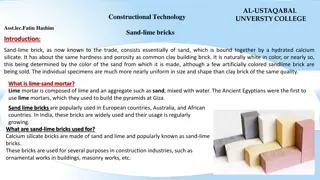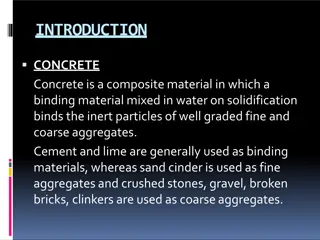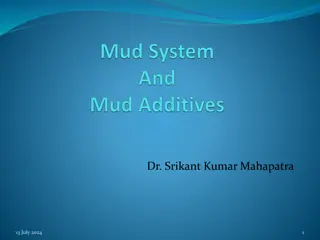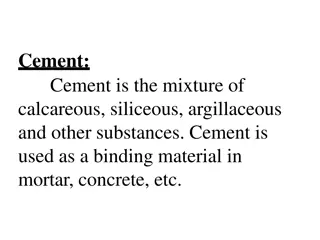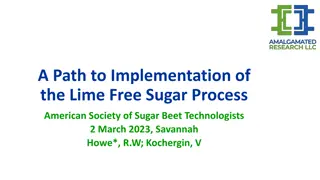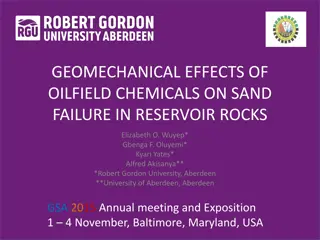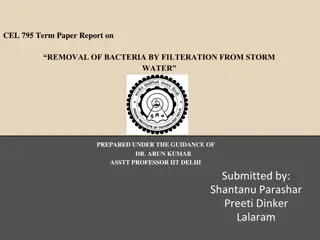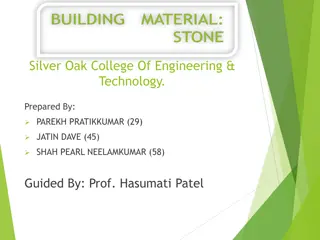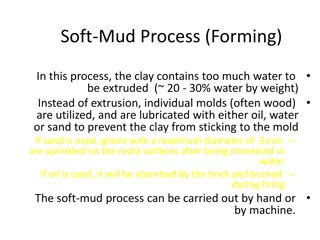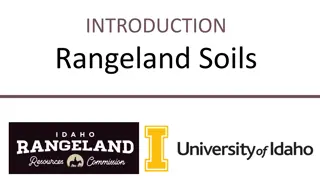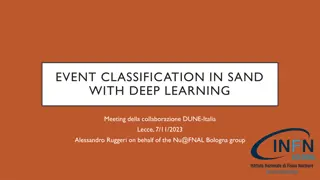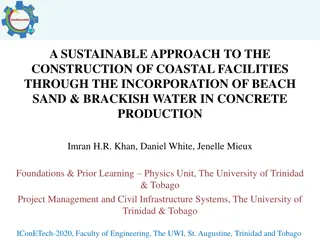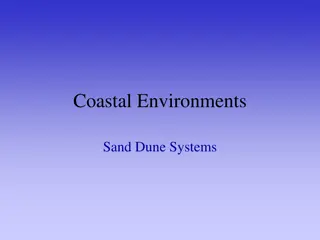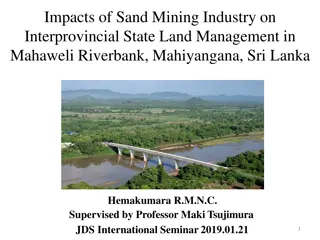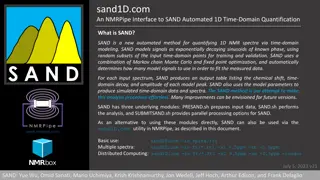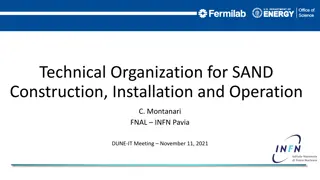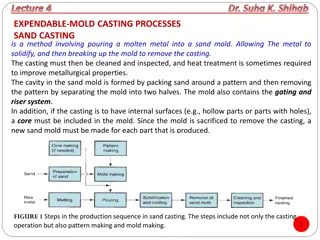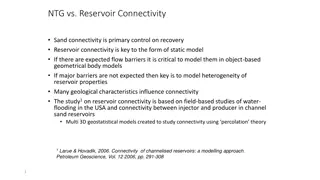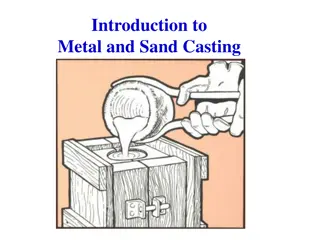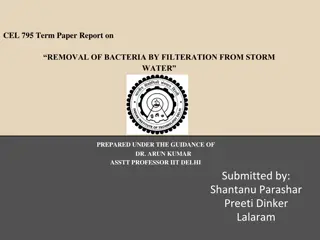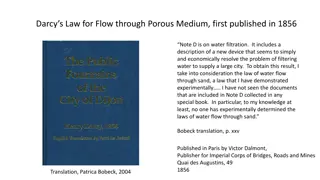OWASP Bricks - Web Application Security Learning Platform
OWASP Bricks is a web application security learning platform built with PHP and MySQL. It offers a simple, clean, and friendly interface where users can break the bricks and learn security concepts. The platform is open source, free to use, and almost all levels can be solved using the OWASP Mantra
1 views • 10 slides
Sand-Lime Bricks: Advantages, Disadvantages & Applications
Sand-lime bricks, made from sand and lime, offer numerous advantages in masonry construction, including uniformity, strength, fire resistance, and reduced construction costs. However, they also have limitations such as poor abrasion resistance. Discover the uses, characteristics, and differences of
6 views • 9 slides
Washed Silica Sand Market: Growth, Trends, and Opportunities
The market is projected to grow in accordance with the increase in the demand for silica sand for numerous applications, particularly for glass and foundry application across the globe. Furthermore, the silica sand market has witnessed a significant increase in demand, owing to its demand as a good
3 views • 4 slides
Bricks Market Share, size and Analysis
The global bricks market size was valued at USD 1691.41 Billion in 2023 and is likely to reach USD 2206.91 Billion by 2032, expanding at a CAGR of 3.0 % during 2024 \u2013 2032.
0 views • 7 slides
Refreshing Cocktail Flavours at Slushie Co.
Indulge in the ultimate party addition with our unique cocktail flavours at Slushie Co. From the tropical sensation of Pina Colada to the tart and sweet fusion of Margarita Lime, our slushies are tailored to elevate any event. For those who crave a more sophisticated twist, our Mojito Mint options b
5 views • 5 slides
Journey of Refining Sugar: From Raw Material to By-Products
Explore the detailed process of refining sugar from raw material to final product, including heating, mixing with lime, CO2 saturation, charcoal filtration, and crystal drying. Learn about the utilization of by-products like bagasse and press mud in fuel production, paper manufacturing, and as natur
0 views • 57 slides
A Unified Approach to Interpreting Model Predictions
Unified methodology for interpreting model predictions through additive explanations and Shapley values. It discusses the relationship between Additive Explanations and LIME, introduces Shapley values, approximations, experiments, and extensions in model interpretation. The approach unifies various
1 views • 21 slides
Understanding Concrete: Types, Uses, and Classification
Concrete is a composite material composed of binding materials, water, and inert particles. It is classified based on binding materials, design, and purpose. Cement concrete is widely used in construction for its strength and durability, while lime concrete offers an economical alternative where cem
1 views • 48 slides
Understanding Butter: Types, Classification, and Neutralization Process
Butter is a fat concentrate obtained by churning cream, with specific requirements as per regulations. It comes in various types such as pasteurized cream, ripened cream, salted, unsalted, sweet cream, and sour cream butter. The neutralization process involves reducing cream acidity using lime or so
0 views • 5 slides
Understanding Inhibited Mud Systems in Drilling Operations
Inhibited mud systems play a vital role in drilling operations by repressing clay hydration and dispersion, offering advantages like higher clay concentration tolerance, reduced effects of contaminants, and better control of mud weight and viscosity. These systems are categorized into different type
0 views • 36 slides
Understanding Sand Dune Vegetation: Citizen Science Survey
Conduct a vegetation survey to track changes in sand dune ecosystems over time. Monitor bare sand cover, vegetation types, plant species health indicators, and nutrient levels. Learn how to conduct the survey to help inform management decisions and preserve dune environments effectively.
0 views • 10 slides
Overview of Cement: Types, Composition, and Functions
Cement is a vital building material consisting of various compounds like lime, silica, and alumina. It is used in mortar and concrete. The chemical composition of cement includes elements like iron oxide and gypsum. Different types of cement serve specific purposes such as rapid hardening or sulfate
0 views • 29 slides
Advancing the Sugar Beet Industry: Lime-Free Process Implementation
The Lime-Free Process offers a sustainable solution for the beet sugar industry, eliminating traditional steps and increasing efficiency. Benefits include reduced environmental impact, improved operational consistency, and the ability to process deteriorated beets. Challenges lie in industry relucta
6 views • 10 slides
Geomechanical Effects of Oilfield Chemicals on Sand Failure in Reservoir Rocks
This study by Elizabeth O. Wuyep et al. explores the geomechanical effects of oilfield chemicals on sand failure in reservoir rocks. It discusses the role of oilfield chemicals, limitations of previous works, experimental flow chart, and static saturation tests. The research emphasizes the need for
0 views • 25 slides
Understanding Filtration Mechanisms for Water Treatment
Filtration is a crucial process in water treatment where granular media remove solids through mechanisms like straining, sedimentation, impaction, and interception. Different types of filters, such as slow sand filters, rapid sand filters, and pressure filters, play vital roles in ensuring water qua
3 views • 10 slides
Understanding Filtration Mechanisms in Water Treatment
The filtration mechanism in water treatment involves various processes such as straining, sedimentation, impaction, and interception. Different types of filters like slow sand filters, rapid sand filters, and pressure filters play a crucial role in removing solids from water. Monitoring filtration i
1 views • 16 slides
Maximizing Bacteria Removal from Storm Water through Filteration Research
This term paper report focuses on the removal of bacteria from storm water using different filteration methods. The study reviews research on sand media filters and explores the efficiency of bio sand filters in removing pathogens such as E. coli, Cryptosporidium, and Salmonella. Key findings highli
7 views • 8 slides
Neutrino Interactions with Liquid Argon at DUNE Near Detector Complex
The Deep Underground Neutrino Experiment (DUNE) aims to study neutrino oscillations using high-precision measurements with detectors like the Near Detector complex located downstream of the neutrino beam. Components such as ND-LAr and SAND play crucial roles in scanning energy spectra. SAND, a perma
0 views • 16 slides
Understanding Sand Crack in Cattle Hooves: Causes, Signs, and Treatment
Sand crack, a fissure of the horny wall in cattle hooves, can present transversely or longitudinally. It commonly affects dairy breeds and is predisposed by various factors such as overgrowth of digital horn and chronic laminitis. Diagnosis and treatment differ based on the form of the crack, with s
0 views • 10 slides
Understanding Stones and Bricks in Construction Engineering
Stones and bricks are essential materials in construction engineering, providing strength and durability to structures. Stones are classified based on geological, physical, and chemical properties, while bricks come in traditional and modular types with specific compositions. The properties of a goo
0 views • 21 slides
Clay Brick Manufacturing Process Overview
The clay brick manufacturing process involves preparation of raw material, forming with various techniques such as stiff-mud and soft-mud processes, glazing, firing in kilns, and cooling. Clay composition, including cohesive properties, and the use of molds lubricated with oil, water, or sand play k
0 views • 5 slides
Understanding Soil Texture and Its Impact on Rangeland Health
Soil texture, determined by the proportion of sand, silt, and clay, plays a crucial role in rangeland health. It affects pore spaces, water infiltration and percolation, water-holding capacity, aeration, erodibility, and compactability. Different particle sizes influence these soil properties, with
0 views • 4 slides
Strong Objection to Proposed Lea Castle Sand Quarry in Cookley
Gail Blunn, a resident of Cookley, raises issues on environmental, health, mental health, community, historical, and personal grounds against the proposed Lea Castle Sand Quarry. The objections include threats to wildlife, impact on air quality and public health, loss of green spaces vital for menta
0 views • 9 slides
Event Classification in Sand with Deep Learning: DUNE-Italia Collaboration
Alessandro Ruggeri presents the collaboration between DUNE-Italia and Nu@FNAL Bologna group on event classification in sand using deep learning. The project involves applying machine learning to digitized STT data for event classification, with a focus on CNNs and processing workflows to extract pri
0 views • 11 slides
Sustainable Construction of Coastal Facilities with Beach Sand & Brackish Water in Concrete
Explore a sustainable approach to constructing coastal facilities by incorporating beach sand and brackish water in concrete production. This method aims to address environmental concerns, reduce reliance on non-renewable resources like sand, and enhance the durability of structures. The project inv
0 views • 15 slides
GCSE Separation Challenge: Iron, Sulfur, Sand, and Food Dyes Mixture
Students are tasked with separating a mixture containing iron, sulfur, sand, and food dyes using various techniques. They work in pairs, following provided instructions and using specific equipment. Marks are awarded based on successful separation and organization. The challenge involves planning, e
0 views • 8 slides
Understanding Coastal Sand Dune Systems and Formations
Explore the intricate world of coastal sand dune systems, including the accumulation of windblown sediment, sand movement processes, dune formation stages, morphology classifications, and further categorization of dune types such as bay dunes and offshore island dunes. Learn about the vital role of
0 views • 7 slides
Joining Bricks to Steel Windows in Construction - Grade 11 Specific Topic
Learn about the specific process of joining bricks to steel windows in construction, along with the importance of maintaining the performance requirements of walls. Steel windows are praised for their strength, durability, and aesthetic value, offering benefits like maximizing glass areas and enhanc
0 views • 33 slides
Impacts of Sand Mining Industry on Interprovincial State Land Management
The study delves into the impacts of sand mining industry on land management in Mahaweli Riverbank, Mahiyangana, Sri Lanka. It explores the methods of sand mining, uses of sand in various industries, the relationship between sand mining and land management, issues surrounding sand storing land, and
0 views • 19 slides
Bricks and Concrete Removal | Junk off Seattle
Junk Off Seattle provides efficient Bricks and Concrete Removal services, ensuring swift and eco-friendly disposal for construction debris in Seattle and surrounding areas.
0 views • 2 slides
Understanding Aluminium Sand Casting Process
Aluminium sand casting is a cost-effective process commonly used in schools due to its affordability and achievable casting temperature. The process involves pattern making, moulding, pouring molten metal, removing sand, and cleaning the final workpiece. Quality patterns and moulds are crucial for s
0 views • 10 slides
Automated Quantification of 1D NMR Spectra with SAND
SAND is an automated method for quantifying 1D NMR spectra using time-domain modeling by modeling signals as exponentially decaying sinusoids. It uses random subsets of input data for training and validation, combining Markov chain Monte Carlo and fixed-point optimization. SAND determines the number
0 views • 25 slides
Technical Organization for SAND Construction, Installation, and Operation
The Technical Organization for SAND Construction, Installation, and Operation involves various Working Groups responsible for deliverables such as designs, hardware components, software packages, and technical documents. The Consortium Technical and Software/Analysis Boards play key roles in decisio
0 views • 5 slides
Expendable-Mold Casting Processes in Sand Casting: Lecture Insights
Sand casting is a process wherein molten metal is poured into a sand mold, left to solidify, and then the mold is broken to retrieve the casting. This casting method involves pattern making, mold creation, and uses a gating and riser system for complex geometries. Riser design is crucial in managing
0 views • 9 slides
Explore Frac Sand Hauler Opportunities
Dive into the world of frac sand hauling and discover the driver requirements, SafeLand training, H2S training, respiratory fit test certification, and CDL holders' medical card necessities. Join the pack today and embrace the journey into this industry!
0 views • 8 slides
Understanding Reservoir Connectivity and Its Impact on Recovery Models
Sand connectivity plays a crucial role in reservoir recovery, with reservoir properties' heterogeneity influencing connectivity. Field-based studies in the USA focus on water-flooding and injector-producer connectivity in channel sand reservoirs. Geostatistical models using percolation theory help s
0 views • 4 slides
Overview of Metal and Sand Casting Processes
Metal and sand casting are ancient manufacturing techniques dating back to 4000 B.C., allowing the production of complex shapes in various metals. The casting industry produces millions of kilograms of castings annually, primarily using materials like gray iron, ductile iron, aluminum alloys, and co
0 views • 13 slides
Enhancing Bacteria Removal from Storm Water through Advanced Filtration Methods
In this term paper report, the focus is on maximizing the removal of bacteria, including pathogens like E. coli, from stormwater using sand media filters. The study reviews current research on sand media filters, compares different filter types, analyzes parameters affecting filter performance, and
0 views • 8 slides
Darcy's Law for Flow through Porous Medium and Water Filtration Device
Darcy's Law, first published in 1856, describes water flow through porous mediums, specifically sand layers. The law is applied to develop a new water filtration device for efficiently supplying water to a large city. Experimental demonstrations and tests conducted in 1855 support the relationship b
0 views • 4 slides

